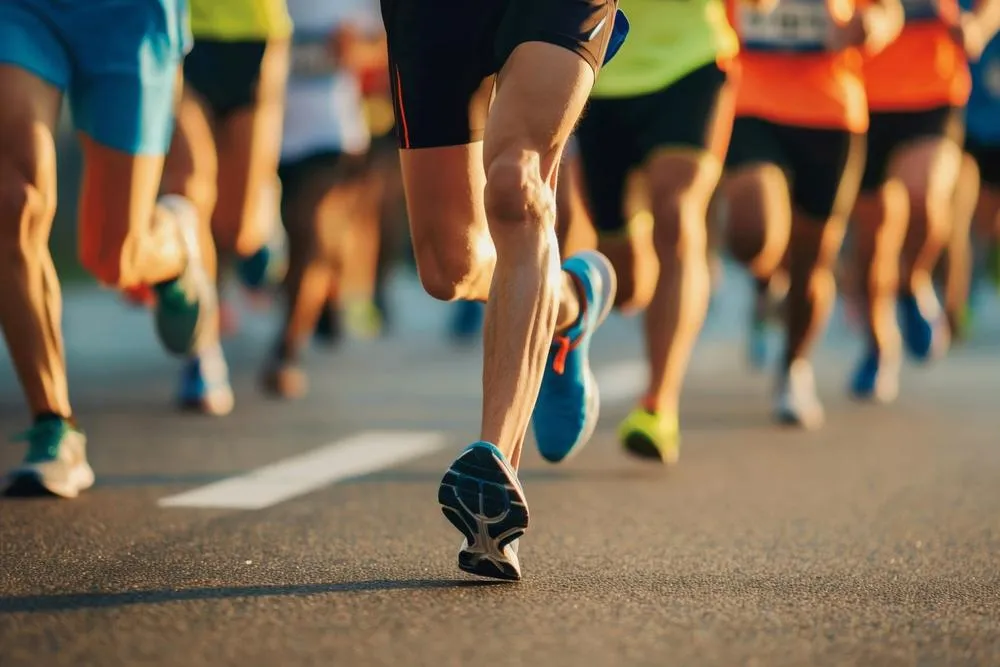
Muscle Fatigue After a Marathon? Here's How to Feel Better Faster
Few moments compare to crossing a marathon finish line—the surge of pride, the crowd’s roar, and the sweet satisfaction of achieving what once felt impossible. Yet as triumph settles in, so too does muscle fatigue, turning stairs into mountains and making every step feel twice as heavy. Why does muscle fatigue strike so hard after a marathon, and what can runners do to bounce back quickly?
What Causes Muscle Fatigue After Long-Distance Running?
Muscles are resilient, but a marathon pushes them beyond ordinary limits. Repeated impact and prolonged effort cause microscopic damage to muscle fibers. The body responds with inflammation and accumulates waste products like lactic acid, contributing to soreness and fatigue. Additionally, energy reserves deplete, leaving muscles struggling to perform normal functions.
All this explains why muscle fatigue is more than mere tiredness—it’s a physiological state that demands focused recovery.

How Long Does Post-Marathon Muscle Fatigue Last?
Most runners notice muscle fatigue peak within 24 to 48 hours after the race, accompanied by stiffness, soreness, and mild swelling. Typically, the discomfort fades within a week. However, pain that persists longer or sharp, localized discomfort could indicate an injury rather than ordinary fatigue.
Learning to differentiate between normal post-race soreness and symptoms of injury is essential for any runner hoping to stay healthy.
The Path to Faster Muscle Recovery
Active recovery is one of the most effective tools for easing muscle fatigue. Gentle walking, easy cycling, or light stretching helps restore circulation, moving healing nutrients into damaged muscle tissue and flushing out byproducts.
Hydration and nutrition are equally crucial. Muscles rely on fluids, electrolytes, and key nutrients to rebuild and recover. Incorporating food that helps with inflammation, like leafy greens, berries, turmeric, and fatty fish, can significantly reduce soreness and promote tissue healing.
Another key piece of the puzzle is sleep. Deep, restful sleep fuels hormone production and cellular repair, making it one of the most underrated aspects of post-marathon recovery.
Massage, foam rolling, and gentle stretching can also ease tension and promote healing. For athletes with lingering discomfort, exploring a sports injury treatment program may uncover underlying biomechanical issues that contribute to excessive strain during long runs.
New Therapies for Relieving Muscle Fatigue
As sports science evolves, innovative approaches are transforming how athletes recover. Shockwave therapy has emerged as a powerful option for treating stubborn muscle fatigue and soreness. Acoustic waves penetrate deep into tissues, stimulating blood flow, reducing inflammation, and promoting cellular repair. It’s a valuable tool for runners struggling with areas of persistent tightness that won’t resolve with conventional methods.
At Optimal Health Members, we’ve witnessed how regenerative treatments for joint pain and muscle injuries can speed healing and improve comfort. Our SoftWave technology, for instance, targets both muscle and connective tissue to promote recovery without invasive procedures or extended downtime.

Another exciting tool is red light therapy, which uses specific wavelengths of light to decrease inflammation, ease pain, and accelerate healing. Many athletes incorporate it into recovery routines to reduce post-race soreness and improve overall tissue health.
Knowing how to accelerate muscle recovery can make the difference between weeks of lingering soreness and getting back to training quickly and safely.
When Muscle Fatigue Might Signal Something More
While soreness and stiffness are normal, sharp or worsening pain, significant swelling, or persistent weakness could indicate a strain, stress fracture, or nerve involvement. Pushing through pain can lead to bigger setbacks. Consulting with a professional ensures proper treatment and prevents a minor issue from becoming a long-term problem.
For runners who deal with ongoing pain beyond typical fatigue, seeking help to find relief from chronic pain is crucial. Modern therapies and advanced diagnostics can uncover hidden issues and offer solutions that restore comfort and mobility.
Moving Forward After the Finish Line
Running a marathon is a monumental accomplishment, but the journey doesn’t end at the finish line. Effective recovery from muscle fatigue protects your body, enhances performance, and ensures you can keep running for years to come.
At Optimal Health Members, we dedicate our time to helping people recover from muscle fatigue, injuries, and persistent pain. Whether it’s advanced shockwave technology, innovative therapies, or personalized chiropractic care, we’re committed to getting you back to doing what you love—stronger and faster than before.
Don’t let muscle fatigue hold you back from your next challenge. Take action today and discover how our modern, non-surgical treatments can help you bounce back faster. Book a session today.